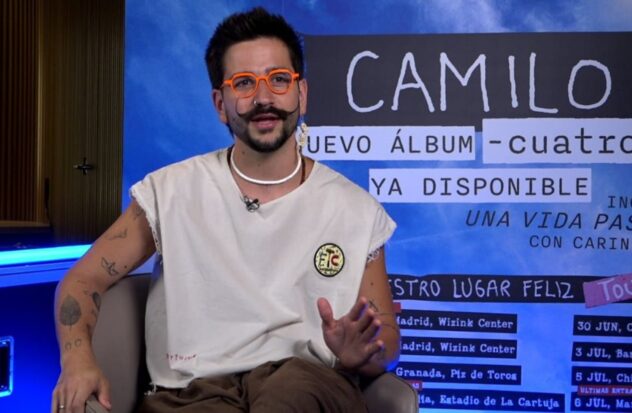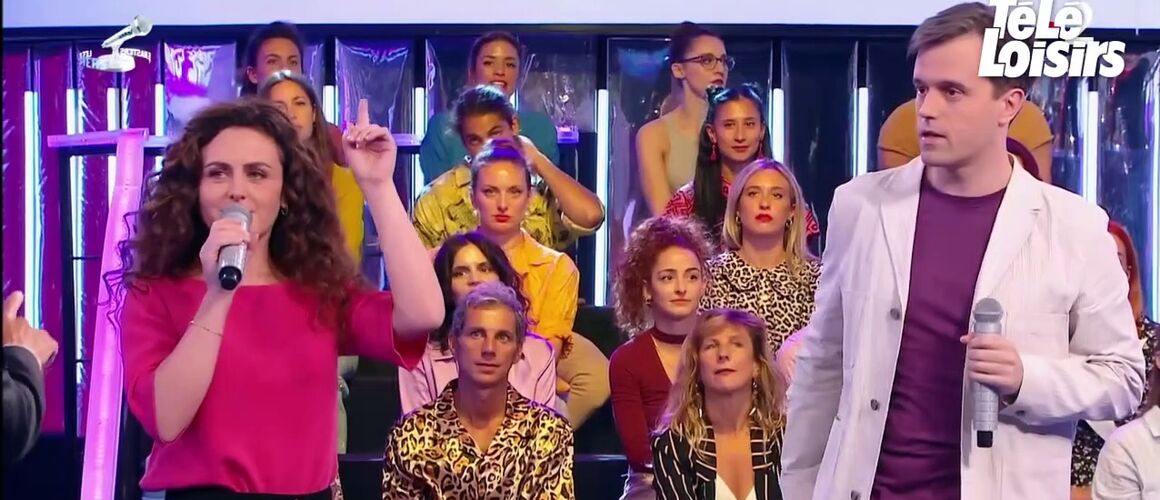The sky has become cloudy. Two hours have passed since noon and the seventh floor of a quasi-skyscraper on Paseo de la Castellana seems to be entering the gray atmosphere. Neruda once spoke of a vertical world where the birds are a nation and the leaves are the crowd.; a universe that seems dreamlike from Madrid’s height until, suddenly, a door opens. Camilo (Medellín, 1994) appears sitting, scanning the horizon from the wall farthest from the window. Orange-rimmed glasses and his mustache, stolen from time and Dal, are the two most striking elements of the portrait of a different artist, a traveling and traveling man that he gets lost in the memories of his native Colombia and that, above all, he broods.
Salvador Dalí once said that his favorite animal symbol was the horse, which he felt was one of them because it represented the strength of youth and life. What animal would your music be?
Look, I don’t know why I’m trying to navigate deeper… (gazes into the window) It seems to me that I have a very great fascination with bees. Although tiny, although tiny, they are fascinating, they have structures that those who see them with the naked eye do not know.
Every person who ever reads something about beekeeping, studies it or watches a movie, a documentary, finds internal structures that are not immediately evident to the eye. The bee has an elemental role in its interaction with biodiversity. The way it blends with all the elements…
That way of approaching the environment from the buzz of the bee says a lot about your first relationship with music. What does your childhood sound like?
My childhood happened first in Medellín, in Colombia, and then in Montería, in Colombia as well; and later, when I grew older, in Bogotá. They seem like three cities that one says well, but all three are Colombia, but of course, my country is a country, like Spain, multiple and very diverse. Every corner of my country is almost its own country. And I was always a traveler within my own country.
When I lived in Medellin I was very small, but when I moved to Montera I was the paisa in Montera. Then I moved to Bogot and I was the countryman and the coster in Bogot. It was always like I was soaked in all the internal identities of my country.
So my childhood sounds like martial bands playing Mara Varilla, playing our traditional Colombian whistles and drums. It sounds like Christmas joints, it sounds like Chucu Chucu. It sounds like all those sounds that I feel voluntarily or involuntarily dampen the sound of who I am as an artist.
It is interesting the cultural extraction that you make of a circumstance as difficult as that of Colombia could be 20 years ago. How do you get something so beautiful out of such an aggressive environment?
That’s exactly why such wonderful things come out (he nods insistently). Not despite that. My country was able to use all of that as raw materials. Considering such a complicated history, how else could the art and colors of a country come out otherwise?
My country has gone through some very complex seasons. And part of that history is what makes our identity so multiple and so fantastic. The way that a Colombian has to do whatever he does, be it in sports, artistically, in the business world, absolutely everything: a Colombian always has a very particular way. And he is the daughter of our history, beautiful but turbulent.
Enlarge
Do you consider yourself someone spiritual?
Everything is spiritual, not just the spiritual. Everything, everything. Even the most everyday becomes the most spiritual.
What goes through your head when you compose?
My connection with divinity, if I have a connection with divinity, is creative. Totally and absolutely. It is only from creativity that I have found in myself that nature of which it is said that we are created in the image and likeness of that totality. It’s only in creativity that I say, more or less, I think I understand it a little more. Creativity is my spiritual language, it is my spirit expressing itself. Intuition and curiosity.
What is your favorite book?
I think that I confess that I have lived, by Pablo Neruda.
Why?
Look, I… Neruda made me very curious since I was little. And I was curious about the number of things that I didn’t understand when I read his poetry, that when you grow up… Neruda has that, that he grows with you, right? I didn’t know that he had a book in narrative, in prose. They are his memories.
I had not known Chile. For me, the Chilean forest was nothing I could relate to. But when I read the first pages of his book, of his memoirs, when he spoke of the tangled Chilean forest, I don’t know what moved in me that made such an internal fiber of mine identify… With what? If none of that vegetation was part of my reality.
I was very curious about the way in which your voice, no matter how specific, can channel the feelings of so many people outside of your context. I was fascinated by that book. And I can read it a million times.
What would you like to tell me in ten years?
I would like it if we met again in ten years that you would ask me the same questions and I would answer completely different things. It’s more. I would like to live in the complicated situation of contradicting everything I am telling you. I would love it. I love it. That happens to me constantly and I want it to continue happening more and more.
Contradiction as a natural norm…
S, s, s (sonre). S.
Follow the Diario AS channel on WhatsAppwhere you will find all the sport in a single space: the current news of the day, the agenda with the latest news of the most important sporting events, the most outstanding images, the opinion of the best AS brands, reports, videos, and some humor from time to time.




